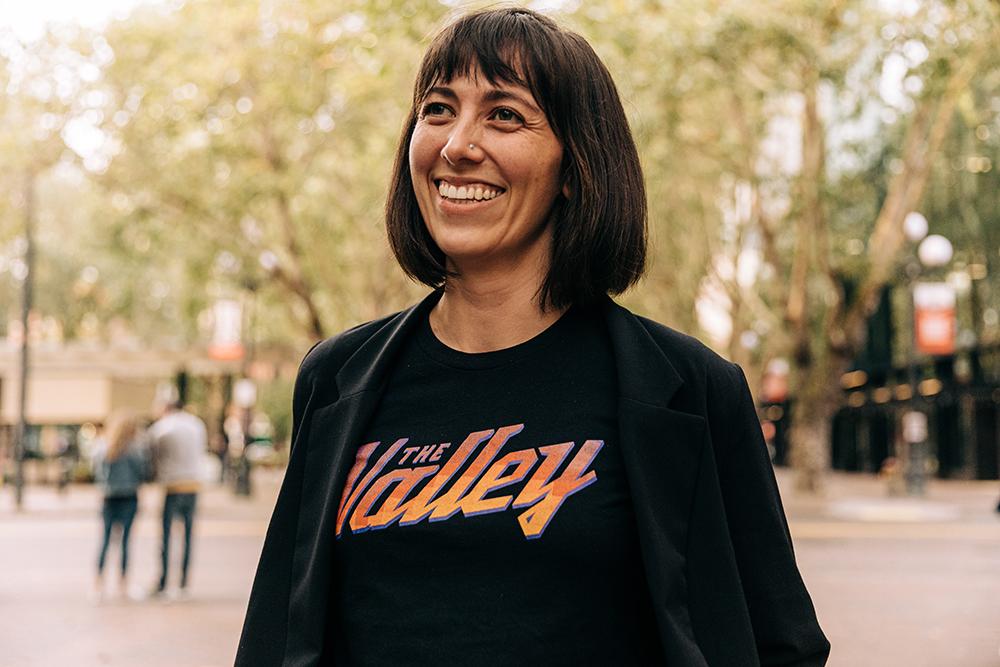Tell us about your role at Modulous.
‘From drawing to dwelling’ I’m responsible for our supply chain’s reliable sequencing and quality delivery of our physical product to site.
How did you get started in the Architecture, Engineering and Construction industry?
After graduating with a chemical engineering degree, I started my career in the oil and gas industry and enjoyed great opportunities to take on multiple leadership roles. About five years in, I took an unplanned break to take care of my family during a challenging time. Once I was ready to get back to work, I started to think more about the size and scale of the impact I could make. At that point, I was 27 and I’d been working at a company with over 100,000 people worldwide. It was an amazing place to gain experience but also tough to make a significant difference.
I considered moving to a smaller company and, more importantly, an industry where I could have a more meaningful impact on important issues like the housing and environmental crises. This led me into the AEC industry and an opportunity with Katerra. During my time there, I was exposed to many different facets of the business, from manufacturing to the job site to product development. It was a unique in-depth experience that accelerated my education and sharpened my diverse skillset.
How has your past product and program management experience prepared you for a leadership role at Modulous?
I was definitely forged in the fire! At Katerra I was given opportunities to lead that perhaps wouldn’t have been presented to me in other organizations, either due to my age or my experience level. I rose to many challenges and gained exposure to other industry tools and techniques, such as the product design process. Working in this space required a lot of the same principles I learned in engineering and oil and gas, so I was able to reframe, apply and deepen many of my existing skills. My time there gave me a very robust and rich experience set to draw from to set up US operations at Modulous for success. I have a strong capability to look at the problems from all angles, while considering different stakeholders and participants, and have gained a bit of a reputation as the team’s Swiss Army knife.
What kind of culture are you building at Modulous?
I see operations as being the backbone of any organization. We’re all about how we deliver on our promises. As an individual and as a leader in the company, I’m working hard to build a culture of consistency, reliability, and accountability. From an operations perspective, this is how we support transformational change.
How is Modulous leveraging technological advancements to optimize construction?
Modulous is endeavouring to improve the construction industry by changing the way that work is done. That change is two-fold. In the physical space, it’s about our delivery method. What’s different about Modulous versus other modular builders is our asset-light model. Whereas in vertically integrated models a company owns all steps in the process to delivery, at Modulous we’re looking to work with partners who have expertise in their field to deliver our physical product. The outcome will not only be improved quality and speed to market of homes, but increased connections and relationships across the industry which will facilitate more homes being built faster, with a stronger eye on sustainability and quality.
On the digital side of things, the goal is to speed up our ability to get healthy homes in the ground. What that means is shortening the amount of time in feasibility, building in sustainability considerations through selected materials, and improving our knowledge around costs so that we can reduce risk. It means that we can deliver a project that much faster, and it gets at the heart of why Modulous is here, which is to solve the housing crisis.
What obstacles are standing in the way of housing production in the US? What needs to change?
At a macro level, the U.S. housing market is similar to many housing markets across the world. We have too much demand and not enough availability. Housing prices remain high in all major cities. In cities like Seattle, San Francisco, and Los Angeles, pricing is becoming really prohibitive for people to be able to live and thrive. That price challenge is based on a number of factors including a limited workforce, longer construction timelines, and rising material costs. Another major factor, that affects the U.S. more than our counterparts in the U.K., is the size and variability of our country. This isn’t rocket science, but what is unique about the U.S. is the fact that we are in a massive country with highly localized codes, rules, and expectations about how to build. All of these things add complexity and further challenge both traditional and modern methods of construction.
How can Modulous bypass those barriers to help deliver housing at scale?
Modern methods of construction like modular are seeking to address some of these challenges. If you are building offsite in a controlled environment, you can improve quality, reduce costs, and shorten build time. In addition to those benefits, Modulous unique asset-light approach means we can identify partners in the right region or area associated with our projects. This allows us to be more flexible, take on more projects, and ultimately deliver better quality and price in an agile way.
What does the future look like for Modulous operations in the US?
Near term, we are working on building our supplier partnerships and our pipeline. In the long term, I see Modulous landing and expanding. With our model, there’s no reason why we can’t quickly operate in multiple markets, support additional product offerings, or utilize our digital product to support other providers in the AEC [architecture, engineering, and construction] industry. The goal for Modulous is to enable others and to enable industry-wide change. You can’t do that by yourself, so short and long-term will be about leveraging partnerships and developing relationships to drive change across the industry.



